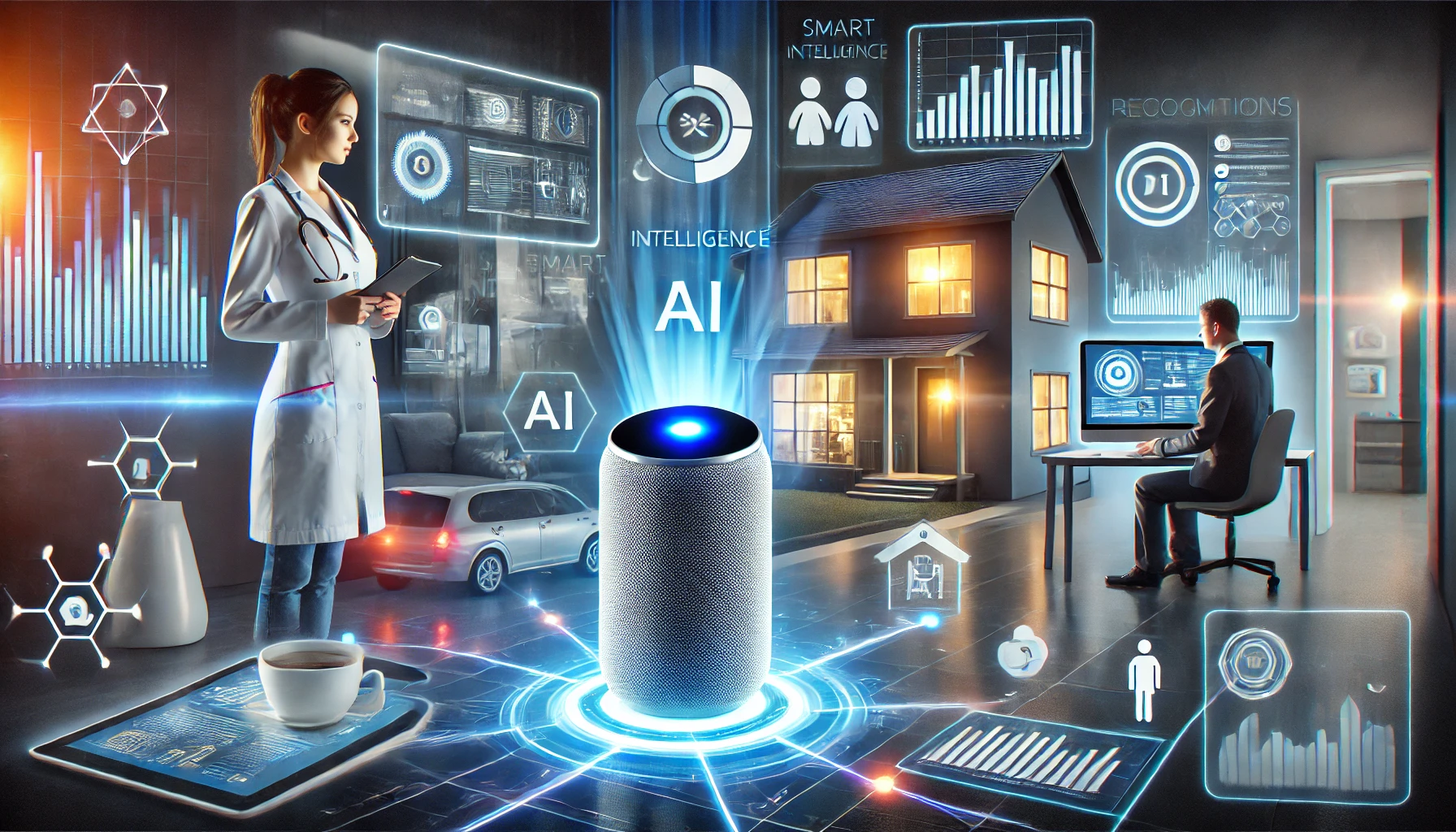Artificial Intelligence in Everyday Life: How AI Impacts Our Surroundings
Artificial Intelligence (AI) is becoming a bigger part of our daily lives, changing how we live, work, and even relax. While AI might seem like a technology of the future, it is already present today in ways that we might not always notice. In this article, we’ll explore how AI affects our daily experiences and how we use its power. Artificial Intelligence in Everyday Life is now.
1. Voice Assistants: Your Personal Helper
One of the most common examples of AI in our lives is voice assistants like Siri, Google Assistant, or Alexa. These systems use advanced machine learning algorithms to understand speech and respond to our commands. They help us do everyday tasks like setting reminders, searching for information online, or controlling smart home devices.
What’s more, these systems are getting “smarter” over time. They learn our habits and preferences, adjusting their answers to better suit our needs. Voice assistants have become more than just tech gadgets; they are real tools to help organize our lives.
2. Personalized Recommendations: Shopping and Entertainment
If you’ve ever used streaming services like Netflix or Spotify, you’ve experienced how AI recommends movies, series, or music based on your previous choices. AI analyzes your preferences and creates user profiles, offering content tailored to your tastes.
Similarly, e-commerce platforms like Amazon use AI to suggest products based on your browsing history or past purchases. This personal touch is all driven by AI, enhancing both user convenience and business success.
3. AI in Health: Telemedicine and Diagnosis
AI is also playing a big role in healthcare. With the rise of telemedicine, AI can analyze patient data and support doctors in diagnosing diseases. Machine learning algorithms can process large amounts of medical data, speeding up the process of detecting conditions like cancer or analyzing medical images like X-rays or CT scans.
In the future, AI could revolutionize medical diagnostics, making treatment faster, more effective, and more personalized.
4. AI at Work: Automation and Data Analysis
AI at work is not just about robots doing simple tasks. Many companies use advanced AI-driven tools to analyze data. These tools help process large volumes of information, providing insights essential for making business decisions. Thanks to AI, companies can quickly spot trends, predict market changes, and respond more effectively to customer needs.
Automation in tasks like customer service (e.g., chatbots) or managing inventories is another way AI supports businesses. This allows people to focus on more creative tasks, leaving repetitive ones to artificial intelligence.
5. Smart Homes: Living in the Future
AI is at the core of many smart home devices. Thermostats, lighting, security systems – many of these devices learn our daily routines and automate home management. Smart thermostats can adjust the temperature based on your schedule, and lighting systems can change brightness depending on the time of day or who’s at home.
This not only adds convenience but also saves energy, reducing bills and environmental impact.
6. Digital Security: Protecting Privacy and Data
AI also plays a key role in keeping our data and privacy secure. AI-based systems monitor suspicious activities in networks, detecting cyberattacks and responding faster than traditional methods. With AI, companies can better protect sensitive user data and prevent hacking attempts.
7. The Future of AI: What’s Next?
While AI is already influencing many aspects of our lives, its potential is enormous. In the coming years, we can expect even more automation and personalized services. The development of technologies like autonomous vehicles, advanced medical diagnostics, or AI-powered content creation shows that AI will continue to expand its reach.
Artificial Intelligence in Everyday Life – Conclusion
Artificial intelligence, often working “in the background,” has a massive impact on our daily lives. From smart homes to personalized shopping experiences to a revolution in healthcare – AI is changing how we live and function. In the future, its role will only grow, bringing new innovations and opportunities while also raising challenges, especially around ethics and privacy.
Do you think AI brings more benefits or risks to everyday life? What are your personal experiences with this technology?


Fajnie napisane! Zawsze fascynuje mnie, jak bardzo AI przeniknął do codziennego życia. Ale mam pytanie: jak sprawa wygląda z prywatnością, kiedy korzystamy z asystentów głosowych? Ciągłe „słuchanie” trochę martwi. I jak się ma do tego kwestia zabezpieczeń danych? Przydatne wnioski z artykułu, ale ciekaw jestem, jakie masz zdanie o tych kwestiach.
Dziękuję za miłe słowa! Jeśli chodzi o prywatność i asystentów głosowych, to rzeczywiście ciągłe nasłuchiwanie budzi wątpliwości, dlatego firmy coraz częściej wprowadzają funkcje zarządzania danymi, jak np. możliwość kasowania historii nagrań. W kwestii zabezpieczeń danych, wiele zależy od stosowanych protokołów szyfrowania oraz transparentności firm co do tego, jak przechowują i chronią informacje użytkowników.
for the reason that here every material is quality based
muito dele está a aparecer em toda a Internet sem o meu acordo.
Esta página tem definitivamente toda a informação que eu queria sobre este assunto e não sabia a quem perguntar. Este é o meu primeiro comentário aqui, então eu só queria dar um rápido
díky tomuto nádhernému čtení! Rozhodně se mi líbil každý kousek z toho a já
I apologise, but it not absolutely that is necessary for me.
Good business!
It agree, rather useful message
Absolutely with you it agree. In it something is also to me this idea is pleasant, I completely with you agree.